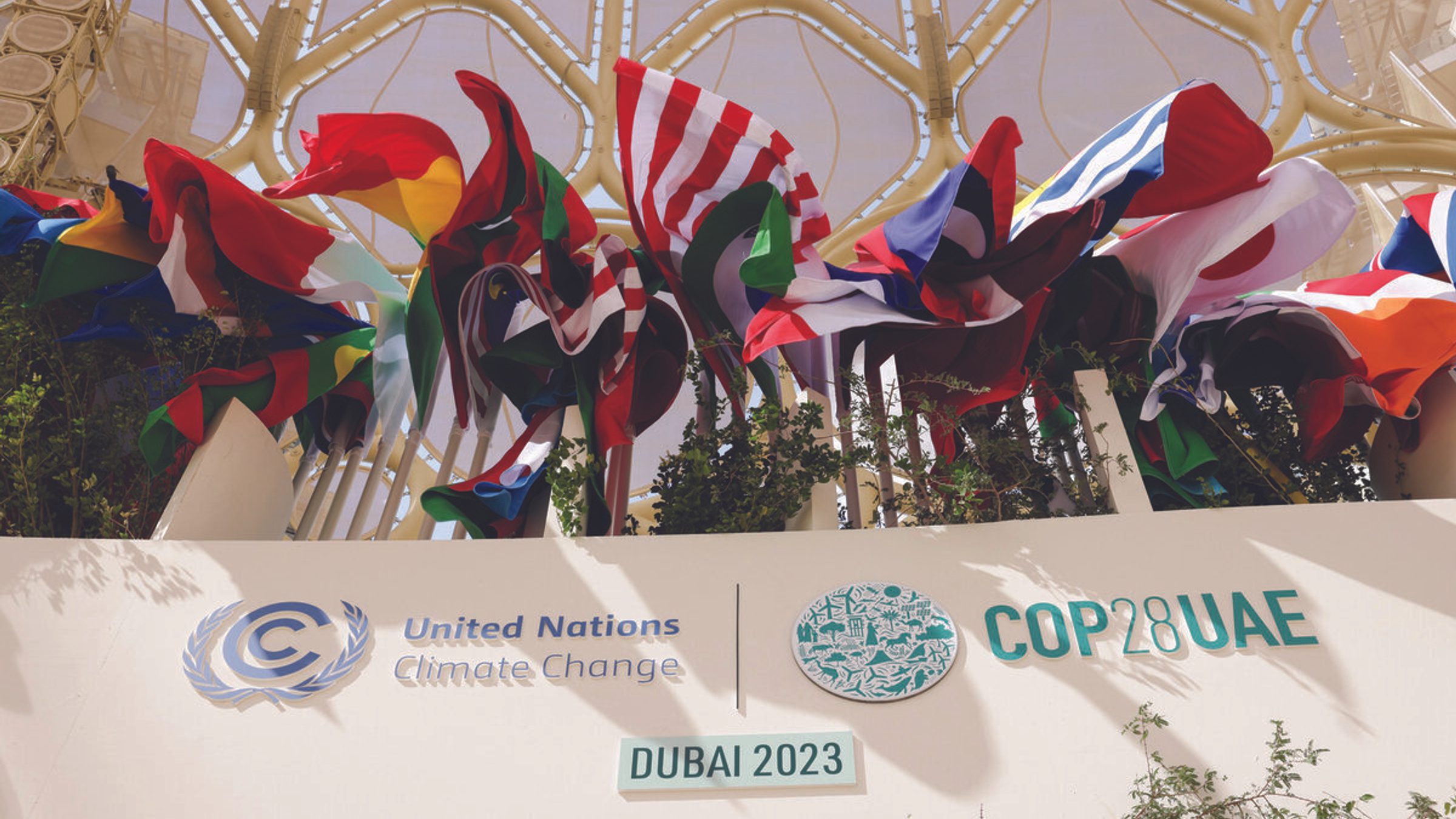The future of humanity depends on what people choose now, Pope Francis said in his message to global leaders at the World Climate Action Summit of the U.N. Climate Change Conference.
“Are we working for a culture of life or a culture of death?” he asked in his message. “To all of you I make this heartfelt appeal: Let us choose life! Let us choose the future!”
“The purpose of power is to serve. It is useless to cling to an authority that will one day be remembered for its inability to take action when it was urgent and necessary to do so. History will be grateful to you,” the pope wrote.
Excerpts from Pope Francis’s full written message were read by Cardinal Pietro Parolin, Vatican secretary of state, Dec. 2 during the high-level segment with heads of state and government at the climate conference, COP28, being held in Dubai, United Arab Emirates, Nov. 30-Dec. 12.
Pope Francis was to have been the first pope to attend the U.N. climate conference Dec. 1-3, but canceled his trip Nov. 28 after coming down with a serious bronchial infection.
The Vatican published the pope’s full speech Dec. 2, although Cardinal Parolin read only excerpts at the summit to respect the three-minute limit on national statements. The text was submitted in full to the conference.
“Sadly, I am unable to be present with you, as I had greatly desired,” the pope’s text said.
The destruction of the environment is “a sin” that not only “greatly endangers all human beings, especially the most vulnerable,” he wrote, but it also “threatens to unleash a conflict between generations.”
“The drive to produce and possess has become an obsession, resulting in an inordinate greed that has made the environment the object of unbridled exploitation,” the pope wrote. People must recognize their limits, with humility and courage, and seek authentic fulfillment.
“What stands in the way of this? The divisions that presently exist among us,” he wrote.
The world “should not be un-connected by those who govern it, with international negotiations that ‘cannot make significant progress due to positions taken by countries which place their national interests above the global common good,’” he wrote, quoting from his 2015 encyclical “Laudato Si’, On Care for Our Common Home.”
The poor and high birth rates are not to blame for today’s climate crisis, he wrote. “Almost half of our world that is more needy is responsible for scarcely 10 percent of toxic emissions, while the gap between the opulent few and the masses of the poor has never been so abysmal. The poor are the real victims of what is happening.”
As for population growth, births are a resource, he wrote, “whereas certain ideological and utilitarian models now being imposed with a velvet glove on families and peoples constitute real forms of colonization.”
“The development of many countries, already burdened by grave economic debt, should not be penalized,” it said. “It would only be fair to find suitable means of remitting the financial debts that burden different peoples, not least in light of the ecological debt that they are owed” by the few nations responsible for the bulk of emissions.
“We have a grave responsibility,” he wrote, which is to ensure the earth, the poor and the young not be denied a future.
The solution requires coming together as brothers and sisters living in a common home, rebuilding trust and pursuing multilateralism, he added.
The care for creation and world peace are closely linked, the pope wrote.
“How much energy is humanity wasting on the numerous wars” being waged, he wrote, and “how many resources are being squandered on weaponry that destroys lives and devastates our common home!”
The pope again urged governments to divert money away from arms and other military expenditures toward a global fund to end hunger, to promote sustainable development of poorer countries and to combat climate change.
“Climate change signals the need for political change” away from narrow self-interest and nationalism, he wrote.
There must be “a breakthrough that is not a partial change of course, but rather a new way of making progress together,” he wrote. There must be “a decisive acceleration of ecological transition” regarding energy efficiency, renewable sources, the elimination of fossil fuels and “education in lifestyles that are less dependent on the latter.”
He promised the “commitment and support of the Catholic Church, which is deeply engaged in the work of education and of encouraging participation by all, as well as in promoting sound lifestyles.”
“Let us leave behind our divisions and unite our forces,” Pope Francis wrote. “And with God’s help, let us emerge from the dark night of wars and environmental devastation in order to turn our common future into the dawn of a new and radiant day.”









